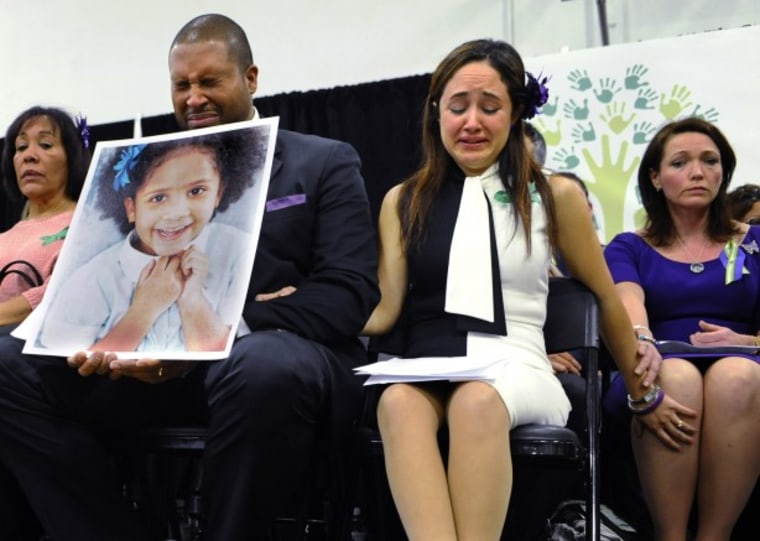After the horror of the Newtown shooting, gun reform advocates expected to finally see a change. Yet Friday marks the six-month anniversary of the tragedy at the Sandy Hook Elementary School and, largely due to the efforts of the gun lobby, none of the nation’s federal gun laws have changed.
“The NRA and special interests have been schoolyard bullies,” Sen. Richard Blumenthal of Connecticut told reporters after a press conference Thursday with Newtown family members in the Capitol. “We lost the first vote, but we’re going to win the last vote.”
Groups on both sides of the debate including Mayors Against Illegal Guns and the National Rifle Association have already begun spending money on attack ads against senators who did not vote as the groups' wished this spring. But advocates on both sides seem to agree that the debate will be decided not by money but by the ability to mobilize grassroots support and voters.
“[A] real grassroots gun control movement? It doesn’t exist, and has never existed,” recently noted Sebastian, a pen name for a popular Second Amendment activist and blogger in Pennsylvania read by activists on both sides. The blogger has dismissed well-financed gun reform efforts as “astroturf,” as opposed to real grassroots support, deriding Mayor Bloomberg as “Astroturf-in-Chief.”
“Sebastian’s right about the past,” Mark Glaze, the director of Mayors Against Illegal Guns, told msnbc.com. “For a generation, the NRA had three advantages,” he added. The gun lobby has long enjoyed a strong grassroots base, members who make gun rights a priority when they vote, and a budget of up to $250 million a year to strengthen their clout.
“But much of that has changed,” said Glaze. Over the past two years, the gun massacres involving Congresswoman Gabby Giffords outside a grocery store in Tucson, Arizona; inside a movie theater during a blockbuster premier in Aurora, Colorado; during a service at a Sikh temple in Oak Creek, Wisconsin; and inside a grade school in Newtown, Connecticut, “have pushed the public passed the tipping point,” he said.
Mayors Against Illegal Guns was not set-up to be a grassroots movement, but a top-down organization, Glaze said. But the organization now has grassroots supporters: 1.5 million people who have signed up to take action on pending legislation and related matters. Signing up requires clicking a mouse, not donating funds. The NRA, by contrast, claims to have over five million members, each of whom pays at least $35 a year.
Other gun reform groups are also active. This week the Newtown Action Alliance, comprised of family members who lost loved ones inside the Sandy Hook school, hand-delivered letters signed by more than 80 gun safety groups to members of Congress in Washington.
“I am here today to remind Congress of what happened to my family, and to remind them of what keeps happening in America,” said Jillian Soto, pausing a few times to compose herself. Her older sister, Victoria, was killed in the school as she tried to hide her first-grade students from the gunman.
On Thursday Newtown family members standing at the Capitol building read out the names of the 4,800 men, women and children across the United States who have been killed in gun violence since the December tragedy in Newtown. On Friday, Mayors Against Illegal Guns will launch a national bus drive reaching 25 states over the next 100 days.
Back in February, less than two months after the Newtown shooting, an NRA lobbyist told supporters in Wisconsin that the NRA’s pro-gun agenda for the nation over the next year would be “delayed” by what he called the “Connecticut effect,” but only for as long as it takes “to go through the process.” Now, more senior NRA officials are suggesting the opposite, predicting that the “Connecticut effect” may well last.
“This war on guns and our rights will continue but now they know that none of us are going to roll over, go away or stand by as our rights are taken from us,” wrote NRA President David A. Keene in the group’s May 2013 issue of American Rifleman. NRA officials at the group’s headquarters in Fairfax, Virginia declined requests for comment.
